Happy Wednesday! Back in 2012, now-retired Mississippi state Rep. Steve Holland introduced legislation to rename the Gulf of Mexico to the “Gulf of America,” telling a public broadcaster it was a satirical jab at the Mississippi legislature’s Republican majority. Little did he know.
Quick Hits: Today’s Top Stories
- Lt. Gen. Herzi Halevi, the head of the Israel Defense Forces (IDF), announced plans on Tuesday to step down by March 6. The military chief cited the army’s failure to prevent Hamas’ attack on October 7, 2023, as the reason for his departure. Throughout the war, Halevi frequently clashed with Israeli Prime Minister Benjamin Netanyahu, who fired Defense Minister Yoav Gallant in November. “On the morning of October 7, under my command, the IDF failed in its mission to protect Israel’s citizens,” Halevi wrote in his resignation letter, adding that the military “must provide answers and conduct thorough, high-quality, and fully transparent investigations.” The IDF is currently conducting an internal probe into the intelligence failures that led to the success of Hamas’ invasion that day.
- The IDF launched airstrikes and a ground raid on the northern West Bank city of Jenin on Tuesday in what it described as a major counterterrorism operation. Dubbed “Iron Wall,” the raid targeted Iranian-backed terror groups operating in the Palestinian territory. Local media reported that 10 people died and 40 were injured in the operation. Also on Tuesday, a Moroccan national with a U.S. green card injured four people in a stabbing spree in Israel’s second-largest city of Tel Aviv. The assailant, who was shot dead by an armed civilian at the site of the terrorist attack, had entered the country legally on Saturday.
- A fire broke out at a popular ski resort in Bolu, Turkey, early on Tuesday, killing at least 76 people. The blaze began just after midnight, and survivors told reporters that there was an absence of fire alarms or clearly marked fire escapes. Turkish authorities have arrested nine people, including the property’s owner, as they investigate the causes of the disaster.
- Much of Southern California remained under red-flag fire risk warnings on Tuesday as strong Santa Ana winds returned and sparked several small fires in San Diego County. However, meteorologists have forecast small amounts of rain for later in the week, which will likely aid the efforts of firefighters still working to contain the large Palisades and Eaton fires in Los Angeles County. Some officials are warning that heavy rainfall on fire-scarred hillsides could increase the risk of serious mudslides.
- A group of civil rights and civil liberties groups on Tuesday filed a lawsuit in a U.S. District Court in New Hampshire, challenging the Trump administration’s recent executive order attempting to end birthright citizenship for those born in the U.S. to parents there on an illegal or temporary basis. The order, which directly contradicts the 14th Amendment and decades of legal precedent, was also challenged by 22 states on Tuesday, including California, New Jersey, and Massachusetts, and joined by the cities of Washington, D.C., and San Francisco.
- Aileen M. Cannon, the federal judge overseeing the classified documents case against President Donald Trump, blocked former special counsel Jack Smith on Tuesday from releasing a section of his report on the case to Congress. “In short, the Department offers no valid justification for the purportedly urgent desire to release to members of Congress case information in an ongoing criminal proceeding,” wrote Cannon, citing the fact that the section contained sensitive information that has not been made publicly available, and the fact that the case was still active against Trump’s two co-defendants, Walt Nauta and Carlos De Oliveira.
- President Trump announced Tuesday that software company Oracle, artificial intelligence startup OpenAI, and technology investment company Softbank would contribute up to $500 billion over the next four years to investments in U.S. AI infrastructure. In a White House briefing, Oracle CEO Larry Ellison said that construction had already begun on 10 data centers in Texas, with more planned. The joint project will be called Stargate. “I think this will be the most important project of this era,” said OpenAI CEO Sam Altman.
World, Meet Trump (Again)
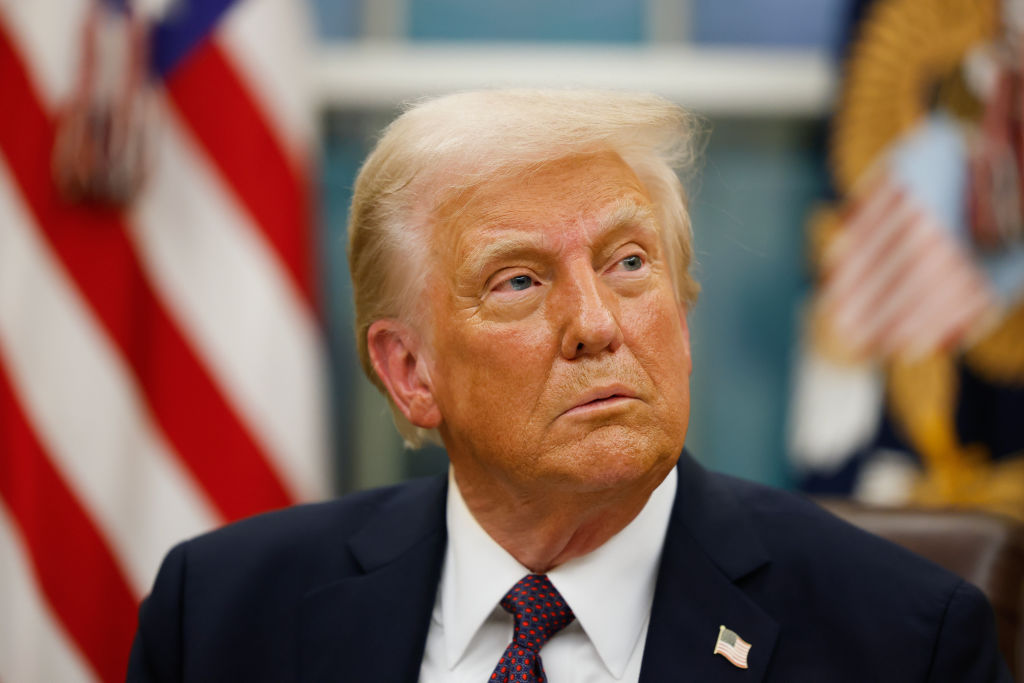
On January 20, 1981—just minutes after President Ronald Reagan took the oath of office—Iran’s revolutionary government freed 52 diplomats it had taken captive amid the country’s uprising, ending the 15-month hostage crisis. Exactly 44 years later, after helping to broker a deal that could soon see the return of seven American abductees from Hamas captivity, President Donald Trump channeled the famous Republican commander in chief on Monday.
“We will measure our successes not only by the battles we win, but also by the wars we end, and perhaps most importantly, the wars we never get into,” Trump told attendees of the inaugural ball. “It’s called peace through strength.”
But it’s impossible to predict the shape of Trump’s approach to global affairs by looking to administrations of the past—even his own. The president has vowed to project military strength while waging “no new wars”; promised to “take” foreign territory without undermining global stability; and pledged to promote American prosperity while threatening the nation’s top trade partners with tariffs. As Americans wait to see how Trump’s slew of ambitious executive orders might transform the homefront, U.S. allies and adversaries alike are watching this idiosyncratic foreign policy closely.
In a Middle East transformed by war and regime change since the last time Trump held office, America’s partners celebrated his return. Israeli Prime Minister Benjamin Netanyahu was among the first to congratulate the president on his inauguration, saying their work together would “raise the U.S.-Israel alliance to even greater heights” in a recorded speech on Monday. “I look forward to working with you to return the remaining hostages, to destroy Hamas’ military capabilities and end its political rule in Gaza, and to ensure that Gaza never again poses a threat to Israel.”
The two leaders do appear to be in lockstep so far. Despite urging Jerusalem to end the war, Trump and his advisers have also publicly stated that Hamas cannot remain in power in the Gaza Strip, leaving the door open for Israel to resume fighting at a later date. The president on Monday lifted sanctions on Israeli settlers accused of violence in the West Bank and is expected to reverse Biden-era restrictions on the supply of 2,000-pound bombs to Israel in the coming days. He also reinstated sanctions against the International Criminal Court, which issued arrest warrants for Netanyahu and other Israeli leaders in November over alleged war crimes in Gaza.
But Trump’s ambitions for the region extend beyond affirming longtime alliances. After his first administration brokered a series of treaties that normalized diplomatic relations between Israel and its Arab neighbors known as the Abraham Accords, the president hopes to build on the landmark agreement by pulling in Saudi Arabia—the birthplace of Islam—as President Joe Biden attempted to do throughout his term. Asked on Monday whether a peace deal between Riyadh and Jerusalem might be on the horizon, Trump responded: “Soon.”
In the Indo-Pacific, too, expect Trump to continue his predecessor’s alliance-building. Secretary of State Marco Rubio—who became Trump’s first Cabinet member after his unanimous confirmation by the Senate on Monday—met with the “Quad” nations of Australia, India, and Japan on Tuesday in his first official act in the role. The conference sent an unambiguous message to China, which has walked a delicate line with the new administration.
Rather than attend Trump’s inauguration himself, Chinese President Xi Jinping dispatched his vice president, who met with Vice President J.D. Vance on Sunday. Chinese spokespeople and state media have projected optimism about the future of U.S.-China relations under the new president, but it may not be enough to avert a trade war. On Tuesday, Trump told reporters that he was considering a 10 percent tariff on all Chinese goods beginning as early as February 1. The president also singled out Beijing in his Day 1 decision to withdraw the U.S. from the World Health Organization for its handling of the COVID-19 pandemic.
Meanwhile, Xi and Russian President Vladimir Putin held a video conference on Tuesday to announce plans to bring ties between their two countries to “a new height.” Like Beijing, Moscow views Trump’s return to the White House as both a potential cause for concern and a moment of opportunity. During a meeting with the Russian Security Council on Tuesday, Putin applauded the new president for his statements about “the need to do everything to prevent a World War III,” blaming Biden—not his country’s invasion of Ukraine—for the breakdown in U.S.-Russia relations.
Ukrainian President Volodymyr Zelensky, too, congratulated Trump on his return to the White House. “President Trump is always decisive, and the peace through strength policy he announced provides an opportunity to strengthen American leadership and achieve a long-term and just peace, which is the top priority,” he wrote in a post on X. “This century is being shaped right now, and we must all work together to ensure that it is a great and successful century for democracies, not those who want us to fail.”
Trump entered office at a decisive moment in the conflict. Ukrainian forces remain outmanned despite staggering Russian losses, but Moscow has increasingly relied on foreign soldiers to fill its own ranks. While Russian troops have made incremental gains in eastern Ukraine, the Ukrainian military continues to hold territory in Russia’s Kursk region as a bargaining chip in any forthcoming ceasefire negotiations.
The new administration has made ending the conflict a cornerstone of its foreign policy, but it’s unclear whether any future peace agreement will be on Ukraine’s terms. Although Zelensky himself has softened on his vow to expel Russian troops from all occupied territory if it means Kyiv can get durable security guarantees, Vice President Vance has voiced support of forced Ukrainian neutrality—a nonstarter for Ukraine, which fears Russia would use the truce to regroup and reinvade in the future.
Asked about Trump’s plans to end the fighting by ABC News’ George Stephanopoulos on Tuesday, Rubio reiterated the difficulties of ending the ongoing war of attrition: “Every side’s going to have to give because neither Russia nor Ukraine can achieve the maximalist goals that they may have for this conflict. But he wants the dying to stop, so it will not be simple, it will not be easy, but it is important, it has to happen.”
Meanwhile, Trump said on Monday that Putin was “destroying Russia” by getting bogged down in the costly war—a possible window into how the U.S. president is thinking about America’s own military engagement abroad. “Russia is bigger, they have more soldiers to lose, but that’s no way to run a country.”
Worth Your Time
- In The Atlantic, Eliot Cohen argued that the “warrior” mindset that defense secretary nominee Pete Hegseth hopes to promote in the Pentagon is a dangerous idol: “The archetype of the Western warrior is Homer’s Achilles. Superbly fit, the ‘swift runner’ Achilles is magnificent in battle,” Cohen wrote. “He is also the man who comes close to killing his boss, Agamemnon, over a favorite concubine; sulks in his tent; and weeps when he feels dishonored until his mother (a goddess) comforts him. In a rage over the death of his friend Patroclus in a fair fight, Achilles not only kills the Trojan prince Hector but then drags his body around Troy for his horrified parents and widow to see. … Warriors are people who exult in killing, who prize individual courage and daring, who obsess about honor (often in self-destructive ways), who frequently take trophies from the bodies of their enemies, and whose behavior on and off the battlefield often veers into atrocity.” American troops should be soldiers instead, Cohen wrote: “They are servants of the state. In well-governed countries, they are bound by discipline, the rule of law, and commitment to comrades and organizations—not to self-glorification. Their virtues are obedience, stoicism, perseverance, and competence. They serve a common good, and duty, not glory, is their prime motivation.”
- Sam Altman, the co-founder of OpenAI, sat down with Bloomberg Businessweek to discuss the future of artificial intelligence under the Trump administration. “I don’t support everything that Trump does or says or thinks. I don’t support everything that Biden says or does or thinks. But I do support the United States of America, and I will work to the degree I’m able to with any president for the good of the country. And particularly for the good of what I think is this huge moment that has got to transcend any political issues,” he said. Asked what the new president can do to spur AI innovation in 2025, Altman responded: “U.S.-built infrastructure and lots of it. The thing I really deeply agree with the president on is, it is wild how difficult it has become to build things in the United States. Power plants, data centers, any of that kind of stuff. I understand how bureaucratic cruft builds up, but it’s not helpful to the country in general. It’s particularly not helpful when you think about what needs to happen for the U.S. to lead AI.”
Presented Without Comment
The Hill: Constitution Page on White House Website Shows 404 Error
In the Zeitgeist
The Australian Open is underway, kicking of the 2025 tennis Grand Slam, and this quarterfinal match between Novak Djokovic and Carlos Alcaraz was… well, we’ll just let the play speak for itself:
Toeing the Company Line
- In the newsletters: Nick Catoggio wrote about (🔒) President Donald Trump’s eventful first days back in office.
- On the podcasts: For The Skiff (🔒), Adaam James Levin-Areddy spoke to Yediot senior reporter Nadav Eyal about the Israel-Hamas ceasefire deal and what’s next for the Gaza Strip. Plus, Jonah Goldberg challenges John Podhoretz’s exuberance over the second Trump administration in today’s Remnant.
- On the site: Joseph Polidoro explains why homeowners insurance has become so expensive everywhere, especially California and Florida, and Goldberg argues that the reason Donald Trump’s victory feels like a “vibe shift” is because the president shattered the political consensus not just on the right but the left.
Let Us Know
In what ways are you expecting—or hoping—that Donald Trump will break from his predecessor’s foreign policy?




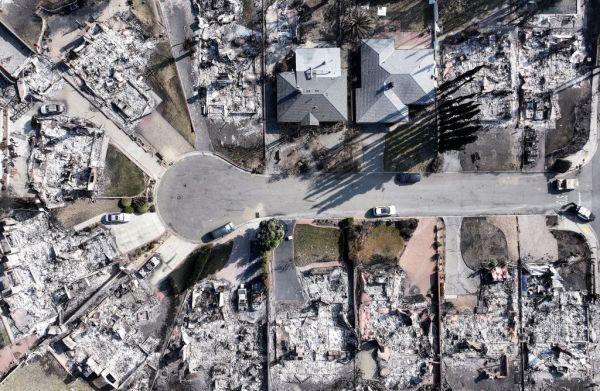
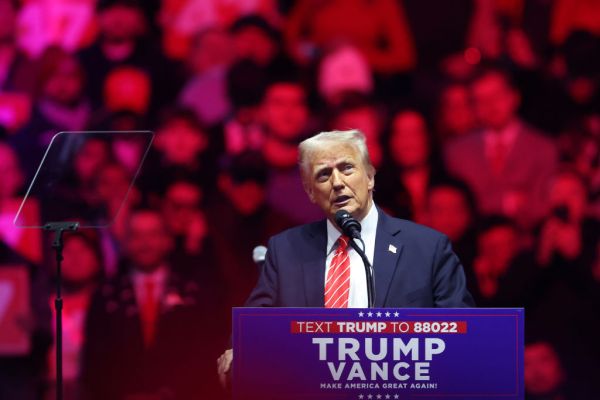
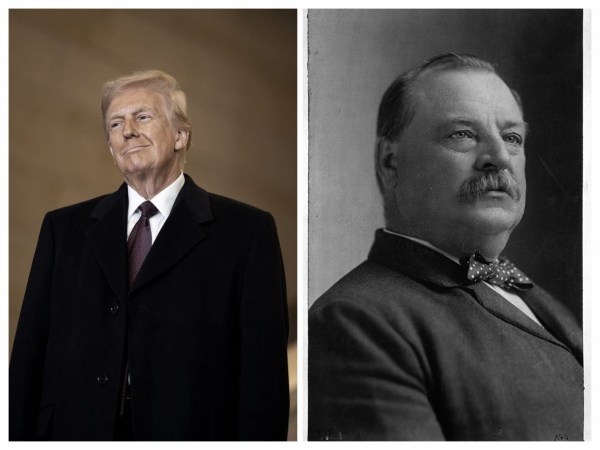

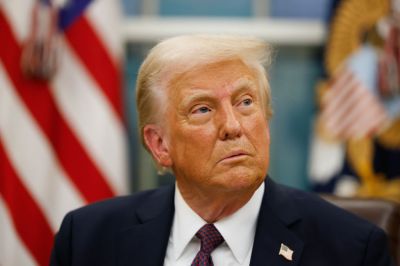
Please note that we at The Dispatch hold ourselves, our work, and our commenters to a higher standard than other places on the internet. We welcome comments that foster genuine debate or discussion—including comments critical of us or our work—but responses that include ad hominem attacks on fellow Dispatch members or are intended to stoke fear and anger may be moderated.
With your membership, you only have the ability to comment on The Morning Dispatch articles. Consider upgrading to join the conversation everywhere.